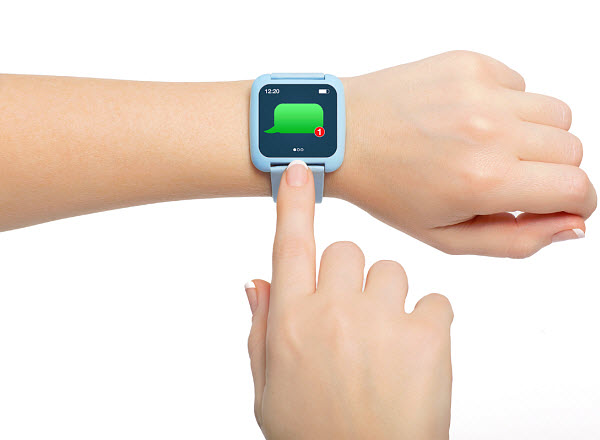The company has now filed for a patent for this type of wearable technology device.
It looks as though Microsoft is looking into becoming another player in the smartwatches game, as the U.S. Patent Office has now publically released an application that was made by the software giant for a design that could place the company in competition against Samsung, Google, and potentially Apple (whenever it makes its own entry into the market).
This application was just released last week, though it was initially filed back in October 2012.
The Microsoft application details various plans for a type of wristwatch that could be used as a music player, a fitness tracker, a messaging device, and to make phone calls. The face for these smartwatches would be able to detach from their bands in order to connect it to a charger. If the company is, indeed, pursuing wearable technology (and this patent application would suggest that it is), the Microsoft will be joining the companies that are making a rather late entry into the market, as Apple is doing.
Other smartwatches have not only been on the market for a while, but they have had multiple generations.
The Galaxy Gear wearable technology, and the Pebble, are good examples of devices that have now had the opportunity to start to build a customer base, to market themselves, and to release more than one version of the device as a better understanding of the use and the tech is created. Another large participant in this market will be Google, when the Moto 360 is released in the United States, this summer. Rumors of Apple’s wearables have been circulating for ages, but as is the tradition from that company, nothing official has been heard about a specific device.
There is also existing competition outside of the giants in the industry, as many startups have been creating their own devices that have started to become popular. Pebble may have only been a startup, but it is still grouped among the serious players as it managed to sell 400,000 of its devices in 2013.
The patent doesn’t make it clear exactly what Microsoft’s smartwatches will be or even if they will be released to the public. As of the time of the writing of this article, the company had yet to release a statement on the matter.
Forecasters had previously predicted that shopping over smartphones would cut back on in-person purchases.
As mobile commerce continues to become increasingly popular among retailers and consumers, alike many forecasters had expected that this would start to negatively impact the amount of shopping that would be occurring in brick and mortar store locations, but recent data is showing that this is not the case.
Many store owners were becoming afraid that mcommerce might have represented their demise.
That said, despite the fact that mobile commerce is growing ever stronger, it is online shopping as a whole that poses the real threat to in-person shopping. A new Gallup poll has indicated that purchasing over smartphones and tablets hasn’t had any real impact on the buying habits at brick and mortar locations, when it comes to the majority of consumers in the United States. In fact, most people who took part in the poll stated that there has been no change in the shopping that they do within actual retail store locations.
This indicates that the growth of mobile commerce is occurring specifically within the online space.
Among the respondents, 59 percent said that they have not altered their retail store shopping. An additional 22 percent said that they shop in-person more often now, because of their smartphones and tablets. That said, 19 percent said that they are shopping less frequently at retail store locations.
As e-commerce becomes stronger, retailers with brick and mortar locations have found that they are experiencing an increasing level of challenges. This is partially due to the fact that their online competition – particularly giants such as Amazon – have notably lower overhead costs, simply due to the very nature of what they are. This can, according to officials from Gallup, allow those online stores to offer the exact same products at meaningfully lower prices.
Another poll that was conducted by Gallup during the holiday shopping season identified “showrooming” as a potential threat, as consumers have a look at a product in a retail store and then compare prices on their smartphones and purchase it over mobile commerce for the lowest cost. That said, as of yet, retailers seem to be embracing the power of mobile marketing and mcommerce and don’t seem to be experiencing any harm from its existence and popularity.



